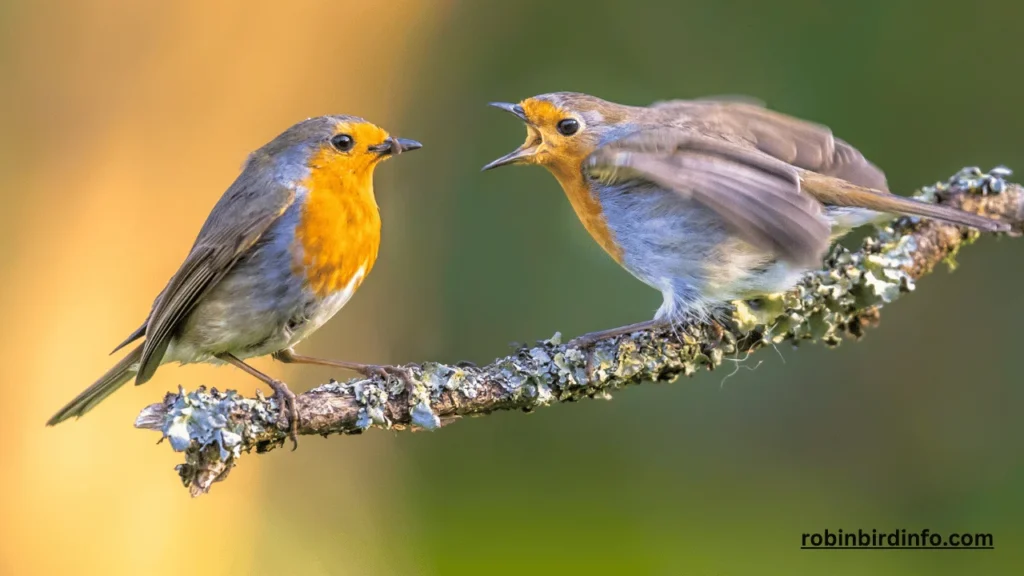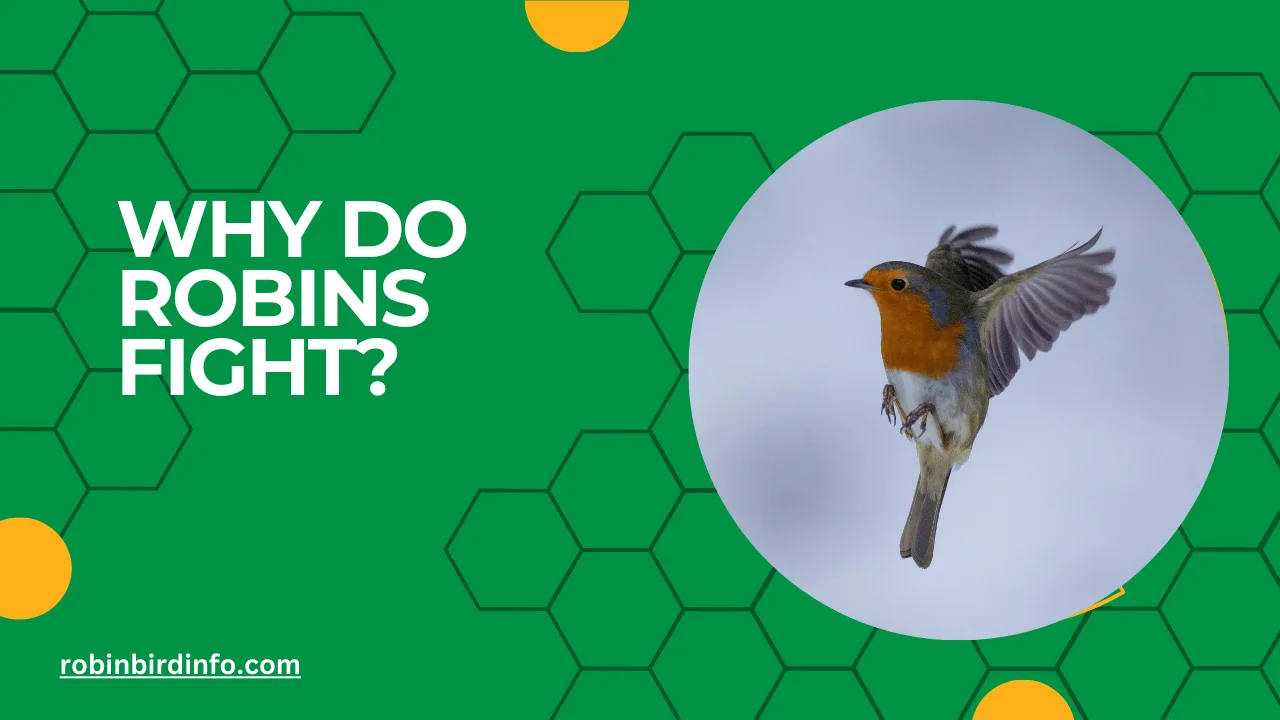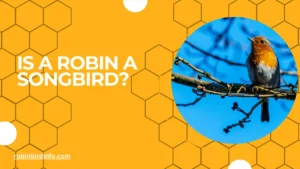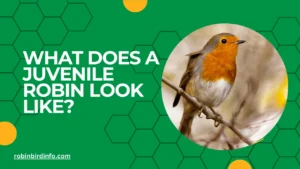Have you ever witnessed a seemingly harmless Robin morph into a tiny, red-breasted warrior?
You’re not alone! These familiar songbirds, often gracing our backyards with their cheerful melodies, can sometimes surprise us with unexpected displays of aggression. Whether it’s a fierce battle over a juicy worm or a relentless pursuit of another Robin daring to enter their domain, Robins possess a surprising capacity for conflict.
But what exactly triggers this fighting spirit? Is it all about protecting precious berries, or is there something deeper at play? Understanding the reasons behind Robin aggression isn’t just about appreciating the complexities of these feathered neighbors; it can also help us create peaceful co-existence in our shared environment.
This blog post delves into the fascinating world of Robin behavior, exploring the motivations behind their territorial battles and offering insights into their fascinating social dynamics.
So, grab a cup of coffee, settle in, and prepare to be surprised by the hidden fierceness of these seemingly gentle birds!
Contents
- 1 Section 1: Territorial Behavior
- 2 Section 2: Competition for Resources
- 3 Section 3: Mating and Breeding Behavior
- 4 Section 4: Predator Defense
- 5 Section 5: Conservation Implications
- 6 FAQ’s
- 6.0.1 Why do Robins attack their reflection in windows?
- 6.0.2 Do Robins attack other birds?
- 6.0.3 Why do Robins dive-bomb people?
- 6.0.4 Can I do anything to deter aggressive Robin behavior?
- 6.0.5 How can I create a bird-friendly environment without provoking aggression?
- 6.0.6 Is it harmful to touch a baby Robin?
Section 1: Territorial Behavior
Establishing Territory: Robins are highly territorial, especially during the breeding season. Male Robins establish and defend territories to attract mates and secure resources for their offspring. They use a variety of vocalizations and displays to claim their territory.
Territorial Displays: Robins employ a range of territorial displays to deter intruders. These displays include singing, posturing, and physical aggression. Male Robins often sing loudly to advertise their territory and challenge other males. They may also engage in aerial displays, such as chasing and dive-bombing intruders.
Factors Influencing Territorial Behavior: The intensity of territorial behavior can vary depending on several factors, including food availability, mate availability, and habitat quality. During periods of food scarcity or high population density, territorial disputes may become more frequent and intense.
Section 2: Competition for Resources
Food Competition: Robins compete for food resources, particularly during the breeding season when they need to feed their young. Competition for insects, worms, and berries can lead to aggressive interactions between individuals.
Nest Site Competition: Suitable nesting sites are limited, and Robins may compete for these resources. Aggressive behavior can occur when individuals attempt to claim or defend nest sites.
Water Source Competition: Access to water is essential for Robins, especially during dry periods. Competition for water sources, such as birdbaths or natural water bodies, can lead to territorial disputes.
Section 3: Mating and Breeding Behavior
Mate Selection: Male Robins use their territorial displays to attract females. Females choose mates based on factors such as song quality, territory quality, and physical condition.
Parental Care: Both male and female Robins participate in parental care, including nest building, incubation, and feeding the young. Territorial behavior helps to protect the nest and young from predators and competitors.
Mate Guarding: Male Robins may engage in mate guarding behavior to prevent their mates from mating with other individuals. This behavior can involve aggressive displays and physical confrontations with rival males.
Section 4: Predator Defense
Mobbing Behavior: Robins may exhibit mobbing behavior, where a group of birds attacks a potential predator. This can be an effective strategy for deterring predators and protecting their nests and young.
Defensive Tactics: Robins use a variety of defensive tactics to protect themselves and their territories. These tactics include dive-bombing, vocalizations, and physical attacks.
The Role of Fear and Aggression: Fear and aggression are important motivators for defensive behavior. When threatened, Robins may exhibit aggressive behavior to deter predators and protect their resources.
Section 5: Conservation Implications

Habitat Loss and Fragmentation: Habitat loss and fragmentation can reduce the availability of suitable nesting and foraging sites for Robins. This can lead to increased competition for resources and more frequent territorial disputes.
Human Disturbance: Human activities, such as gardening and birdwatching, can stress Robins and trigger aggressive behavior. It is important to minimize disturbance to Robin nests and avoid approaching them too closely.
Conservation Strategies: To protect Robin populations and minimize human-wildlife conflict, it is important to create and maintain bird-friendly habitats. This includes providing suitable nesting sites, food sources, and water sources. Additionally, reducing pesticide use and avoiding the use of harmful chemicals can help to protect Robins and other wildlife.
Conclusion
While Robins are often perceived as gentle and harmless creatures, they can exhibit aggressive behavior, particularly during the breeding season. Understanding the factors that trigger aggressive behavior can help us appreciate the complex social dynamics of these birds and promote peaceful coexistence between humans and wildlife. By creating bird-friendly environments and minimizing human disturbance, we can help ensure the survival and well-being of Robin populations.
FAQ’s
Why do Robins attack their reflection in windows?
Robins perceive their reflection as a territorial intruder and may attack it aggressively. This behavior is particularly common during the breeding season when they are fiercely protective of their territory.
Do Robins attack other birds?
While Robins are generally territorial toward other Robins, they may also attack other bird species, especially if they perceive them as threats to their territory or resources.
Why do Robins dive-bomb people?
Robins may dive-bomb people who come too close to their nests or perceive them as a threat. This behavior is a defensive tactic to protect their young and territory.
Can I do anything to deter aggressive Robin behavior?
You can try to deter aggressive Robin behavior by avoiding disturbing their nests and minimizing your presence near their territory. Consider using bird deterrents, such as reflective tape or fake predators, to discourage them from attacking.
How can I create a bird-friendly environment without provoking aggression?
To create a bird-friendly environment, provide suitable nesting sites, food sources, and water sources. Avoid disturbing Robin nests and maintain a safe distance when observing them.
Is it harmful to touch a baby Robin?
It is best to avoid touching or handling baby Robins. Human contact can stress the birds and may lead to abandonment by their parents.








